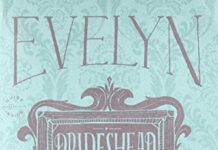
Ebook Info
- Published: 2018
- Number of pages:
- Format: Epub
- File Size: 0.40 MB
- Authors: Thomas Hardy
Description
This is a reproduction of a classic text optimised for kindle devices. We have endeavoured to create this version as close to the original artefact as possible. Although occasionally there may be certain imperfections with these old texts, we believe they deserve to be made available for future generations to enjoy.
User’s Reviews
From Publishers Weekly Anna Bentinck ratchets up the melodrama for this full-blooded reading of Hardy’s classic—a staple of high-school English classes everywhere. Students desperate to penetrate Hardy’s notoriously slow masterpiece should turn to Bentinck, who gives it an intense emotional coloring. She makes Hardy sound like a brother to the Brontë sisters: passionate and brooding. Bentinck alternates between a crisp, precise narrative voice that sounds like Helen Mirren, and Tess’s own voice, quavering, shallow and meek. Bentinck retains her composure throughout, and her assured performance may be a welcome rescue for struggling 11th graders across the country. (June) Copyright © Reed Business Information, a division of Reed Elsevier Inc. All rights reserved. –This text refers to an alternate kindle_edition edition. From the Inside Flap Violated by one man, forsaken by another, Tess Durbeyfield is the magnificent and spirited heroine of Thomas Hardy’s immortal work. Of all the great English novelists, no one writes more eloquently of tragic destiny than Hardy. With the innocent and powerless victim Tess, he creates profound sympathy for human frailty while passionately indicting the injustices of Victorian society. Scorned by outraged readers upon its publication in 1891, Tess of the d’Urbervilles is today one of the enduring classics of nineteenth-century literature. –This text refers to an alternate kindle_edition edition. Review “Anna Bentinck’s narration shows how a classic comes alive when voiced by just the right performer. Her voice is a delight as she breathes life into a broad cast of characters…Bentinck’s crisp accents and consistently flowing pace suit the beauty of Hardy’s language, as well as the intricacies of his plot. With verve and personality Bentinck delivers a classy performance of a truly classic novel.”– “AudioFile” –This text refers to an alternate kindle_edition edition. From the Author Thomas Hardy (1840–1928) was a novelist and poet whose novels include Far from the Madding Crowd and Jude the Obscure. –This text refers to an alternate kindle_edition edition. From Library Journal This edition of the Hardy classic includes a complete authoritative text plus biographical and historical contexts, critical history, essays by five scholars, and a glossary. A fine scholarly edition for the academic crowd.Copyright 1998 Reed Business Information, Inc. –This text refers to an alternate kindle_edition edition. From the Publisher Founded in 1906 by J.M. Dent, the Everyman Library has always tried to make the best books ever written available to the greatest number of people at the lowest possible price. Unique editorial features that help Everyman Paperback Classics stand out from the crowd include: a leading scholar or literary critic’s introduction to the text, a biography of the author, a chronology of her or his life and times, a historical selection of criticism, and a concise plot summary. All books published since 1993 have also been completely restyled: all type has been reset, to offer a clarity and ease of reading unique among editions of the classics; a vibrant, full-color cover design now complements these great texts with beautiful contemporary works of art. But the best feature must be Everyman’s uniquely low price. Each Everyman title offers these extensive materials at a price that competes with the most inexpensive editions on the market-but Everyman Paperbacks have durable binding, quality paper, and the highest editorial and scholarly standards. –This text refers to an alternate kindle_edition edition. Book Description Cambridge Literature is a series of literary texts edited for study by students aged 14-18 in English-speaking classrooms. It will include novels, poetry, plays, short stories, essays, travel-writing and other non-fiction. Tess of the d’Urbervilles by Thomas Hardy is edited by Rex Gibson, Director, Shakespeare and Schools Project. –This text refers to an alternate kindle_edition edition. Book Description One of a series of literary texts edited for study by 14–18 year olds in English-speaking classrooms. –This text refers to an alternate kindle_edition edition. Review “Attractive, readable edition, reasonably priced–I like the map in the front matter.”–Dorice Elliott, Johns Hopkins Univ.”A magnificent editing job….A model of how Hardy’s novels should be edited for the 21st Century.”–W.E. Davis, Purdue University”Another good edition in this series–the notes seem to be more extensive and more helpful than those in Penguin.”–John Wilson, Dakota Wesleyan University”Oxford World’s Classics are my favorite editions of novels, both for my own work and in the classroom. The texts are reliable and sound; the apparatus, helpful and instructive; and the introductions are provocative and informed. Thank you for a wonderful series!”–Laura Dabundo, Kennesaw State College”I like this ‘World’s Classics’ Series so much and use many of the books in my lit. courses. Good introductions and notes and reasonable prices.”–Harriet Blodgett, California State University, Stanislaus”An excellent example of the repackaging of primary scholarship from the Clarendon text to a teaching edition.”–Patrick Scott, University of South Carolina”Impressive for its maps, including the Wessex of Tess. The print is easy to read and the paper of good quality.”–Dr. Ellen Sprechman, Florida International University”A beautiful text: easy-to-read type, helpful endnotes and usable map.”–Pauline Fox, Mt. Mercy College”Excellent volume. Excellent value.”–David Sanders, St. John Fisher College”The introduction is useful to students as well as teachers. Unsophisticated readers and not just scholars can profit from the ‘Note on the Text’ to Tess.”–Bernard Bernatovich, University of Wisconsin-La Crosse –This text refers to an alternate kindle_edition edition. Review “Cover to Cover’s unabridged readings of classic novels are in a class of their own.” — Sunday Telegraph”For classic literature, check out the new “Cover to Cover” series. All are 19th and 20th century works produced in England. They are handsomely packaged in sturdy, decorative cardboard boxes. The series carries the exclusive Royal Warrant from Charles, Prince of Wales.” — The Boston Globe, January 1999″Stephen Thorne’s reading simply carries one along. It is superb throughout.” — Gramophone”These Cover to Cover tapes offer up a delectable feast for fans of the spoken word. We’re talking class act here – from the elegant covers to the accomplished readers.” — Deirdre Donahue, USA TODAY, December 3, 1998 –This text refers to an alternate kindle_edition edition.
Reviews from Amazon users, collected at the time the book is getting published on UniedVRG. It can be related to shiping or paper quality instead of the book content:
⭐ …for one US Dollar.Arrrrgh. What a beautifully frustrating and revealing book. And impossibly well crafted. I want to slap all of the principals, and then hug them, and then get everyone a therapist. I can’t possibly have anything new to add to Criticism of Thomas Hardy–threats of bodily harm do not in my view qualify–but his ability to pick out the things we experience as tragic, or joyful, or melancholy, or triumphant and then describe those things poignantly is perhaps unsurpassed. It seems he alone has access to some previously-unknown API that precisely resonates on every page. (Dare I recommend Tess to fans of Neal Stephenson?)I laughed, I cried…okay, fine, maybe I didn’t laugh.But I was transported.
⭐ I am naturally drawn to works of literature that explore the effects of the past on the present. (This, I know, is a tricky statement; some will argue that all works of literature do this in some way.) I trace my obsession with the past to two main factors: I belong to an inherently nostalgic culture, and during my adolescence I moved to a different country. At a crucial moment in my life, in other words, I experienced an event that dramatically accelerated a preexisting tendency. I’ve quoted a famous line by Faulkner in previous reviews, but I’ll do it again: “The past is never dead. It’s not even past.” Thomas Hardy obviously understood this sometimes fascinating, sometimes irritating fact of life._Tess of the D’Urbervilles_ (1891) is the first novel by Hardy that I read in its entirety. My first experience of the author’s prose was _The Mayor of Casterbridge_ (1886), which I was supposed to read years ago for a university course on the nineteenth-century novel. I was not able to finish it due to an illness, but I remember being pleasantly surprised. For some reason, I had expected a boring story and a tedious style; instead I found an engaging narrative with a few unexpected twists. I promised myself I would read the novel some day. Years passed, and when I heard that _Tess_ dealt with purity in a fallen world, I felt inclined to read this novel before reattempting _The Mayor of Casterbridge_.Tess is one of the most interesting characters I have encountered in nineteenth-century novels. If Flaubert and Emily Brontë catered to readers’ fascination with illicit pleasure and self-destruction, and Jane Austen proved that virtue is far from safe and humdrum, Hardy offers a heroine that is pure, human, and real. Tess is a good girl who makes a mistake through no fault of her own. She is too good for this fallen world.The first quarter of the novel relates the realist equivalent of the story of Little Red Riding Hood. When Tess’ father is told that he is the descendant of the noble family of the D’Urbervilles, the young woman’s parents send her to a well-off family that bears that name, in the hope of improving their status. The wealthy family, it turns out, has merely adopted the name of D’Urberville, and Tess gains nothing from the experience. On the contrary, she is seduced, ruined, by Alec D’Urberville, who calls her “coz.” Years later, Tess meets Mr. Right in the form of Angel Clare (talk about a symbolic name), and the encounter gives rise to the novel’s central dilemma. If Tess tells Angel about her past, she may lose her second chance at a happy life. If she does not tell, her new relationship will be based on a lie (or, at least, a hidden truth) that may be made manifest at any moment. Tess’ present and future are thus determined by her past. One of the crucial questions that Hardy raises is this novel is: to what extent should a person be judged by one specific past action?_Tess_ owes its transcendence largely to the complexity of the issues it raises. We as readers know that Tess should not be judged by her past mistake. She is innocent, not to blame for what happened to her. Angel, for his part, may not be so sure. On hearing about Tess’ mistake, he may come to perceive her as a loose woman, someone not to be trusted. Society condemns Tess because she is a woman; her seducer does not suffer at all the consequences of his action. The situation is complicated by the fact that the society that Hardy portrays is not exactly Christian. For a Christian, the answer to Tess’ dilemma is quite simple: she should be open with Angel, as it is preferable that he know the truth from the beginning. If he is to find out later on, as he surely will, he will feel cheated. If Angel judges Tess unjustly, finally, he will be responsible for that. (“In considering what Tess was not, he overlooked what she was.”) In the novel, Tess knows (almost instinctively) what to do, but her hesitancy, combined with Angel’s optimism, leads to greater conflict.Another major issue treated in _Tess_ has to do with the selfish nature of human attachments. When rehearsing to herself words that are meant for Angel, Tess says: “she you love is not my real self, but one in my image, the one I might have been!” Tess is conscious that Angel does not love her for who she truly is. How many people can say that they love someone for who he/she is? To put it another way, to what extent can we claim to know a person for who he/she really is? All we know is what others choose (consciously and/or unconsciously) to show us. Based on this, we create for ourselves an image of the other person, almost as if we were covering his/her face with a mask. (In psychoanalysis, this mental image we have of another person is referred to as the “imago.”) Many times, our perception of the other person is even a reflection of ourselves. We do not see each other face to face. One cannot love what one does not know, and yet how many people can truly say that they even know themselves? Our way of life does not promote this type of knowledge. We are conveniently kept busy.So far I’ve commented on the novel’s moral and psychological dimensions. Let me now mention the style. One may criticize Hardy for many things, among which are his relativism and his pessimism, but he is undoubtedly a master stylist. The beauty of his prose is heightened by its measured quality. He is not excessive; rather, he will dazzle the reader every now and then with a beautiful passage. For instance: “It was a fine September evening, just before sunset, when yellow lights struggle with blue shades in hair-like lines, and the atmosphere itself forms a prospect without aid from more solid objects, except the innumerable winged insects that dance in it.” Consider also the following meditation: “Why it was that upon this beautiful feminine tissue, sensitive as gossamer, and practically blank as snow as yet, there should have been traced such a coarse pattern as it was doomed to receive; why so often the coarse appropriates the finer thus, the wrong man the woman, the wrong woman the man, many thousand years of analytical philosophy have failed to explain to our sense of order.” The actual explanation may be simple (the law of cause and effect), but this does not diminish the beauty of the prose. Philosophy is a different matter. At the risk of sounding simplistic, I believe much of Hardy’s worldview may be summarized with the paraphrase, “Fate acts in mysterious ways.”Why not five stars? I feel the novel could have been 100 pages shorter. The world it describes is rather small, so small, in fact, that serendipity plays a pretty large–and unfortunately not always believable–role. _Tess_ is great realist fiction, but it is not _Middlemarch_. At the same time, the heroine herself is memorable and unique. Like Dostoevsky’s _The Idiot_, this novel seeks to trace the effects of a corrupt world on a pure individual. Hardy is a much more effective narrator than Dostoevsky, however, and personally the story of an innocent woman appeals to me more than that of an innocent man.My next Hardy novel will be _The Mayor of Casterbridge_.Thanks for reading, and enjoy the book!
⭐ Reading Tess’s story is a good reminder of how the prospects for women’s lives have improved dramatically over the ~140 years since it’s setting in the 1870’s. Raised in an impoverished family, Tess Durbeyfield is sent to spend time with the D’Urbervilles in hopes that she can lay claim to some of the family’s wealth. She finds that she is not related to that family, and in her innocence of the ways of the world (and of men), she is taken advantage of in the worst way. Returning home with her reputation in shambles, she decided to eventually leave home once again to go to a place where no one knows her so she can start over. She becomes a dairymaid at a remote farm and makes friends with several of the other maids, as well as a devout young man, Angel Clare. Tess’ sordid past continues to haunt her, and she struggles to find a safe place in the world where her past secrets can be left behind.Hardy’s stilted, occasionally flowery and overly verbose language sometimes makes it difficult to discern exactly what is going on, but the cloak of bad luck and misery never seems to be far from Tess. Her hopes and dreams are constantly dashed, and it is difficult for her to know who to trust.I know that this novel is frequently assigned to high school students, which seems surprising due not only to the mature content, but also the length of the novel and the antiquated language. However, there are a number of strong themes throughout the novel that still resonate today, particularly the double standards that apply to women: a pure woman faithfully presented.
⭐ I’ve read lots of Thomas Hardy, and somehow left this book for last. I should have read it sooner. Not to give too much away, every woman alive in the western world should read this book to see how much better they have it than their sisters from the nineteenth century. Tess is sorely used by almost every man in the book who encounters her, and she has so little protection from those who should protect her, it’s very sad.The language, somewhat difficult for a less educated reader like me, is beautiful. The descriptions of the English countryside makes one long for simpler, more bucolic times. We wouldn’t have to keep track of our steps to get our 10,000 every day. In several scenes, characters walk 30 miles in a day, starting before first light (in summer) and arriving at their destination well after dark.At least two characters in the book get just what they deserve–I’ll leave it to you to decide if I’m right.I loved the book. It is my favorite of all the TH books I’ve read.
⭐ I had been warned about Tess of the D’Urbervilles. I was not to expect a happily ever after. What I didn’t expect was to feel the misery that is Tess throughout the whole entire book. You will not get a break. You will not feel good (except at Talbothay’s), and you will live in a bubble of frustration throughout the book. Enjoy!There is no disputing that Hardy was a talented story-teller or that this book for the time it was written was groundbreaking by addressing and challenging the social construct of the time, but that aside there was nothing enjoyable about this novel and my frustration levels were so high, I thought I might toss my Kindle across the room.WARNING: Spoilers ahead!!*****Let us start from the beginning. Sir John finds out he is, in fact, Sir John D’Urberville. What’s in a name when you witness a drunkard father with delusions of grander strolling around his town after being told of his ancient lineage? The idea that somehow blood makes you more superior to another human being. Horse excrement.Moving along…I find it hard to believe that Tess, having the amount of brothers and sisters under her household, could be that naïve about the birds and the bees so to speak…but here we are. It was a sign of the times I’m sure. Keep thy maidens as ignorant as possible in the name of the Father, the Son, and the Holy Ghost I guess.This inevitably leads her to get knocked-up by the playboy, Alec to which we’re not entirely sure because of the vagueness of the scene that transpired. I hadn’t really figured out what happened until she’s nursing her child in a field in Marlott. This part confuses me to no end. Alec—despite being a playboy and a rake and an utter a-hole (‘xuse my French)—offers her marriage. It never seemed to me that he was going to deny her anything despite her being with child (which we find out he didn’t know about at all). Ultimately in the end, she ends up having to go back to him anyway. Full circle. The story could have ended right here.Fast forward, she loses her child and seeks employment 40 + miles away at Talbothay’s where she meets Angel Clare. They fall madly in love with each other. He asks her repeatedly to marry him but she wrestles with telling him about her past and therefore refuses over and over and over and over. Heeding the advice of her mother, she refrains from telling Angel about her prior circumstances until after they wed. Honestly? Not what I would have done. What did she have to lose? She apparently lost him anyway. She might as well have told him.And let’s talk about that, shall we?Angel, Angel. You pompous douchebag, Angel. He goes on to confess (after the wedding) that he had a two-day affair in which he proceeded to screw his brains out and then felt bad about it afterwards. Notice, no mention of the other woman.Then, Tess takes that as her queue to let everything out and what does our boy Angel, do??? Turns into a complete macho a-hole. I mean, I get why he is upset. Naturally. But if one of your options is to move to the Colonies where no one would be the wiser about your wife’s past a whole ocean away, do you not love Tess enough to move there and start a new life since you were thinking about doing that anyway? Goodness. The first test of your wedding vows and your impulse is to go to BRAZIL?! Lord help me with this one.And speaking of Brazil. I nearly lost it. I completely lost it when he asked Izz to, in short, live with him in sin in Brazil because he was in fact “living in sin” with a wife who had lost her virginity already. So, let me get this straight, Angel. You want to flee from living in sin to…live in sin? Did I get that right? :::screams:::So, more misery unfolds until we are presented with Alec the good witch converting to Christianity (Protestantism?? I don’t know. Pick a religion), he sees Tess and POOF! He falls in love with her again and stalks her while her family falls into despair from her father’s death (Sir John…hah! Bull excrement right there) and she ultimately goes with him because he was her last hope since Angel is frolicking around in Brazil acting a fool.5 years later (:::Facepalm:::), Angel comes back to find her with Alec at an Inn, he travels aaaaaaaaaall that way for her and to claim his wife, and when he finds her with Alec, he basically shrugs and walks away….WHAT THE #%^K?!So our girl Tess, who has to take everything upon herself because she’s surrounded by b!+ch boys, immediately murders Alec in an effort to be with her one true love. See, Angel? That’s how it’s done.And to add to all the oddness of this whole entire plot, they end up…wait for it…in Stonehenge. :::rolls eyes::: Stonehenge???? Lord have mercy.There, she gets arrested for killing Alec but not before she makes the request to marry her little sister. Based on the very vague final chapter, I suppose that’s what happens which is further odd. You mean to tell me, Angel, that you were worried about what society might think of you and your non-virginal wife and you go and marry your dead, murderous wife’s sister? I’m sure the town will be quiet about that one.As you’ve gathered by now, this was not the book for me. Spare me the lecture about how this book is a work of art. How dare I! Blah, blah, blah. There’s enough misery in the world. When I dive into a book, I want to get away from it.
⭐ This is one of the great English novels, probably among the first five in distinction among the novels of the late 19th century. It is certainly Hardy’s most accomplished novel. “Tess” is set in Hardy’s version of the Wessex region of England, where, for example, the city of Dorchester becomes Casterbridge. This is the story of Tess Durbeyfield. The Durbeyfields used to be known as the d’Urberviiles, centuries before, when they were rich and powerful. As with almost all of Hardy’s novels, the evocation of the boggy hill country of southern England is so closely intertwined with nature, that one begins to smell the heady aromas of the countryside. Coincidentally, Roman Polanski’s finest film is “Tess”, Nastassia Kinski is the perfect Tess, Polanski shows usthe innocence of the girl, how its purity is the reason for her downfall. The scene in which she bites into a strawberry is the ultimate seduction scene for PG audiences.
⭐ I have bought several of the Penguin Classics Hardcover series. Each cover is beautifully done and the novels themselves are excellent quality. The bookstores tend to sell these editions for $25.00, so I’m always excited to see them on this site for roughly half the price. As a couple of others have stated, the covers look great on bookshelves. I look forward to buying more from this collection.As for the novel itself, Tess of the D’Urvervilles is one of my favorite novels of all time. Rich, complex, heartbreaking, and beautifully written.
⭐ This is a classic novel I had long had on my to-do list. Although it is written in the seemingly stilted language of 19th century England, it has the kind of descriptive detail and character development that characterize good literature. While sometimes my interest flags in less compelling books, this held my interest throughout. In my view, there is little contemporary literature that favorably compares with the richness of this classic tale.Spoiler alert: the ending was rather abrupt and disappointing.
⭐ “Tess of the D’Urbervilles” is Thomas Hardy’s most famous protagonist and one of literature’s most tragic heroines. At first, she reminded me very much of Ibsen’s Nora, but as the book came to a close I came to realize that Tess is far more emotionally complex than Nora: much moodier, much prouder, much more romantic, and ultimately much more tragic.The story is pretty well-known to most people. Tess is a young beautiful maiden who has a lazy drunk for a father and a manipulative opportunist as a mother. At a young tender and naive age she is essentially raped by her well-to-do cousin, and it’s a stigma that haunts her in the small-minded provincial town where she lives. She soon meets the man of her dreams, a clergyman’s romantic son who finds a kindred soul in Tess, and while Tess does her best to maintain her distance eventually she gives way to her passion, and marries Angel Clare. Though she has lost her virginity to another man Tess remains pure and free, and against the warnings of her mother she forces herself to tell her new husband of her past. And because her husband is very young, very proud, and ultimately constricted and contained by the conservative pettiness of the people around him he decides to flee from Tess. And this sets the stage for Tess’s ultimate downfall.The themes and plot of this novel have been copied copiously in Western culture, but what makes this novel such a masterpiece is the emotional force and beauty of Tess’s characters, and it would be almost impossible for anyone else to replicate the sincere sympathy Hardy has for his most famous heroine. Literary critics can always point to the depth in meaning and symbolism of the novel — the themes of innocence, spirituality, and romantic passion course wildly throughout the novel — but it’s Tess’s sense and pursuit of love, her utter and pure and completion to the man she loves, that will continue to move readers for centuries to come.
⭐ This was my first Hardy novel and I immediately understood why he considered one of the greats. The story of Tess is challenging to read at some points due to the unfortunate hand life has dealt her. However, you fall in love with the protagonist and must find out how the story ends. Hardy’s use of language, and overall story telling, are absolutely amazing. I couldn’t put this one down. I loved it so much I’m now reading ‘the Woodlanders’ with plans to read ‘Far From the Madding Crowd’ and ‘the Mayor of Casterbridge’. As an aside I am really enjoying ‘the Woodlanders’ too.Ps. If you’re worried about the books age or use of unfamiliar language, don’t be. I found Hardy’s use of language very digestible and his themes were relevant and timeless. Brilliant read!
Keywords
Free Download Tess of the D’Urbervilles: A Pure Woman in Epub format
Tess of the D’Urbervilles: A Pure Woman Epub Free Download
Download Tess of the D’Urbervilles: A Pure Woman 2018 Epub Free
Tess of the D’Urbervilles: A Pure Woman 2018 Epub Free Download
Download Tess of the D’Urbervilles: A Pure Woman Epub
Free Download Ebook Tess of the D’Urbervilles: A Pure Woman





